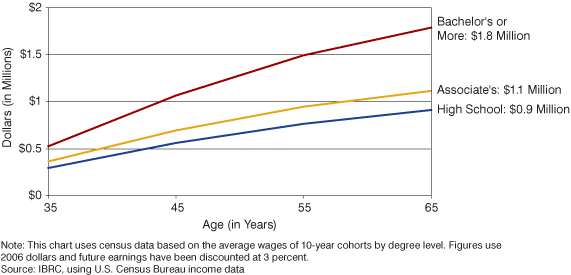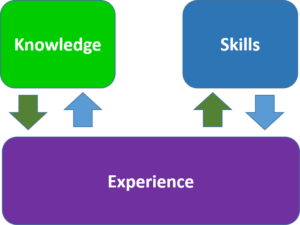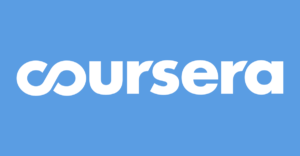Human Capital Theory Explains Why your First Job is so Important
Human capital Theory – the skills, knowledge, and experience that each individual human has – is one of the most important things to consider when discussing higher education. From an economic perspective, it’s the only reason to consider higher education. People in high school always told me “you go to college so you can get a better job” and among from the other joys of college, a better job placement is an expected benefit. Your higher education gets you a higher salary as a result of the skills, knowledge, and experience you earn at college (the key word here is earn).
If your ability to earn a better job is dependent on your human capital, then it should certainly be something to consider, especially for college students. A Nobel prize-winning economist, Gary Becker showed us just how important college is for the development of human capital. He found that an investment in higher education was one of the greatest investments an American can make, with a return on investment of 13%, almost double the historical stock market average of 7%.
Now 13% might not seem like a lot (and if you’re interested in researching further, Payscale lets you compare colleges based on ROI), but we have to take some considerations into effect if we want to understand just how important this. Consider the graph below:

What this graph shows is that while earnings between high school graduates and college graduates start off somewhat close, the gap between the two-degree holders widens substantially over time: The earnings gap by age 35 might be $200,000 but the gap by age 65 can increase to $900,000 on average (according to this graph at least). The rate at which college graduates increase their earnings is simply higher because of greater human capital (or at least better credentialed human capital).
 Now, what does this all have to do with a college student’s first job? Well, research has shown that because of the compounding nature of earnings, even a $5,000 bigger salary (which is around the average salary increase awarded to graduates who negotiate) in your first career salary can translate to $600,000+ over the course of the average career. So, while taking a low salary early in life may seem like a small setback, graduates are actually missing out on exorbitant sums of money. To get that early higher salary though, students must be able to showcase higher human capital. This ability to signal your skills, knowledge, and experience to employers is known academically as signaling theory.
Now, what does this all have to do with a college student’s first job? Well, research has shown that because of the compounding nature of earnings, even a $5,000 bigger salary (which is around the average salary increase awarded to graduates who negotiate) in your first career salary can translate to $600,000+ over the course of the average career. So, while taking a low salary early in life may seem like a small setback, graduates are actually missing out on exorbitant sums of money. To get that early higher salary though, students must be able to showcase higher human capital. This ability to signal your skills, knowledge, and experience to employers is known academically as signaling theory.
Recall that I mentioned a better job placement is an expected benefit of higher human capital, and that human capital is earned in college. With so many students competing for jobs, students who best showcase their high human capital earn the high paying jobs.
How then can college students best earn and showcase their human capital, earning them a higher salary once out of college? Easy. Increase your skills, your knowledge, and your experience. We’ll go into how students can develop each of these three qualities briefly.
Developing Skills
 Skills can be developed in numerous ways, in both structured and unstructured learning environments. Certainly, students can expect to learn skills, especially soft skills, throughout their coursework. For most fields of study, undergraduate students are expected to learn technical skills too, such as learning a programming language, conducting a financial analysis, designing a website, or painting a portrait.
Skills can be developed in numerous ways, in both structured and unstructured learning environments. Certainly, students can expect to learn skills, especially soft skills, throughout their coursework. For most fields of study, undergraduate students are expected to learn technical skills too, such as learning a programming language, conducting a financial analysis, designing a website, or painting a portrait.
Students can learn new skills by pursuing the courses they find most appropriate, but on top of that, they can pursue skill-developing opportunities outside the classroom. Participation in extracurricular activities have been shown to increase both soft and technical skill development and consequently post-college earnings. I know of a university which had on its campus a prestigious academic club that belonged to the business school; the school conducted a study and found that graduates who had participated in that club had earnings 25% above the business school’s average graduate. For those club graduates, that 25% jump can compound into a six- or even seven-figure difference over the course of their career, as we discussed above.
Extracurriculars are one of the best ways to learn new skills while making friends and being on campus. Students can also learn skills from the comfort of their home as well. Sites like edX, Coursera, and Udemy provide fully online mini-classes for skill-building. Other lesser-known and less expensive resources are abundant online, you just have to do a bit of looking.
However you choose to develop your skillset throughout college, it’s a smart idea to showcase your projects and demonstrable skillset in the form of a portfolio. Portfolium is a great tool for students to create a remarkable online portfolio.
Developing Knowledge:
While showcasing skills can be crucial to a job recruiter, the knowledge you present about your field of study is important for discerning how well you can apply skills to a new experience. Whereas skills are tools, knowledge in many ways is the mode by which you use tools. Knowledge of specific industries, technologies, methodologies, etc. can all be useful to various employers. While skills are admittedly more universal, for students who are keen on working in specific industries, such as tech, biomedical, accounting, or art, it’s important to have substantial background knowledge. Having the knowledge that’s relevant to a specific industry can be a highly desirable quality for many recruiters.
Of course, students gain tremendous knowledge in the classroom, but in the Information Age, there’s endless opportunity to learn outside the classroom as well. So how can students efficiently develop their field-specific knowledge? First students have to define what field they want to study! This can be a really tough question and students tend to change their career goals a lot as they progress through college. We’ve discussed in other articles how students perform their own version of First Degree’s Academic Exploration.
Once a student knows what they want to know, they can use the boundless information at their fingertips to get a pulse on the field. There’re millions of different sources of knowledge on each industry and each field of study. Interested in world economics? Go watch some of the thousands of hours of content provided by the World Economic Forum. Interested in cancer research? Keeping up with the latest news through the American Cancer Society or National Cancer Institute will probably give you a competitive edge when interviewing for medical school.
Developing Experience
What you learn in the classroom is important, but hands-on, “real life” experience is what job recruiters are always looking for. Entry-level jobs will usually request 1-2 years of experience to apply. How is it possible for students who’ve just graduated to have job experience? Well, internships and extracurricular activities are a great starting point.
Most companies expect students to have held at least one internship by the time they’ve graduated college. With more students than ever in higher education, competition is fierce, and some students pursue internships every summer from their senior year of high school to their senior year of college. While this is an extreme, it certainly shows how important hands-on experience is to employers, and how important it is for students to get a head start.
Students should realistically start researching internships as soon as freshmen year to get an idea of what kind of career they want to pursue. Once students get some good career ideas, they can dip their toes in the water by finding an on-campus club, a job-shadow program, or a local business, where they can start getting some experience.
Just as salaries are compounding, the experience is also compounding. Early experience leads to greater experience over time. An officer position in an Accounting Club can lead to an internship at a local accounting firm, which can lead to an internship at a Big 4 accounting firm. Being strategic about your internships and your overall experience development plan can position you for an awesome first-time job.
First Degree Program Service Packages
Tools and Resources from this Article that We Recommend to our Clients
![]()








